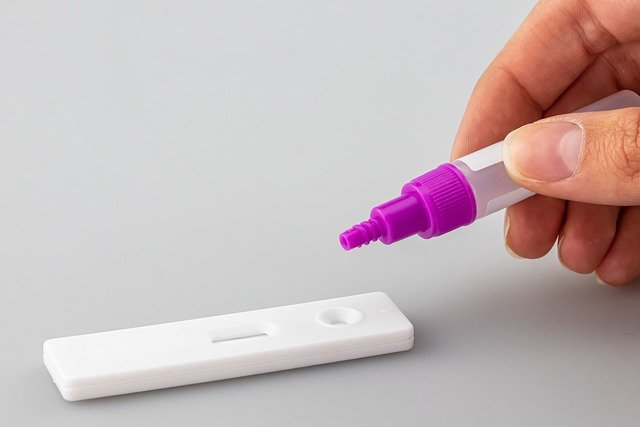Sperm Donation: Understanding Program Standards and Participant Advantages
What motivates individuals to participate in such selective U.S. programs? Beyond meeting rigorous health and lifestyle requirements, qualified contributors often gain access to structured, informational, and wellness-related benefits that support long-term personal awareness. This guide explains how the screening stage takes place, which criteria are taken into account, and what results a participant may receive after completing all standard procedures. The material helps to provide a clearer understanding of the program’s structure and the participation process.

Medical donation programs serve as essential components of fertility treatment centers, providing carefully screened genetic material for individuals and couples pursuing assisted reproduction. These programs operate under strict medical guidelines and offer participants various benefits beyond monetary compensation.
The High Value of Comprehensive No-Cost Health Screening
Participants in medical donation programs receive extensive medical evaluations that would typically cost thousands of dollars in standard healthcare settings. These screenings include comprehensive blood panels testing for infectious diseases, genetic disorders, and overall health markers. Physical examinations, psychological assessments, and detailed medical history reviews are conducted by specialized healthcare professionals. The screening process often includes advanced genetic testing that can reveal carrier status for hereditary conditions, providing valuable health information for participants and their families. Many programs also conduct regular follow-up screenings throughout the participation period, ensuring ongoing health monitoring at no cost to the contributor.
Understanding Contributor Expectations and Program Structure
Medical donation programs maintain specific requirements for participants, including age restrictions typically ranging from 18 to 39 years old, height and weight guidelines, and educational background considerations. Contributors must commit to regular donations, usually 2-3 times per week for 6-12 months. Programs require abstinence periods before each donation and maintain strict lifestyle guidelines regarding alcohol consumption, smoking, and recreational drug use. Medical facilities expect participants to maintain detailed health records and report any changes in medical status or lifestyle factors. The donation process itself involves private collection facilities with comfortable environments designed to reduce stress and ensure sample quality.
Long-Term Personal Insight Through Genetic and Wellness Information
Participation provides contributors with detailed genetic profiles and health assessments that offer long-term personal benefits. Advanced genetic testing can reveal predispositions to various health conditions, enabling proactive healthcare planning and lifestyle modifications. Many participants discover previously unknown family medical history through comprehensive genetic analysis. The regular health monitoring throughout program participation creates detailed health baselines that can be valuable for future medical care. Some programs provide ongoing access to genetic counseling services, helping participants understand their test results and implications for personal and family health planning.
Participant Advantages: Access to Program-Specific Resources and Guidance
Medical donation programs offer participants access to specialized medical professionals, including reproductive endocrinologists, genetic counselors, and mental health specialists. Many facilities provide educational resources about reproductive health, genetics, and wellness optimization. Participants often receive priority scheduling for medical appointments and access to cutting-edge fertility research findings. Some programs offer networking opportunities with other participants and alumni, creating supportive communities around shared experiences. Legal guidance regarding donor agreements and future contact policies is typically provided as part of program participation.
| Program Type | Compensation Range | Key Benefits |
|---|---|---|
| University-Based Programs | $50-$100 per donation | Research participation, extended screening |
| Private Fertility Clinics | $75-$150 per donation | Flexible scheduling, comprehensive health monitoring |
| Medical Banks | $60-$125 per donation | Long-term storage options, detailed genetic testing |
| Research Institutions | $40-$80 per donation | Advanced genetic analysis, educational resources |
Compensation rates mentioned are estimates based on typical industry standards and may vary significantly by location, program requirements, and individual qualifications. Independent research is advised before making financial decisions.
Medical Supervision and Safety Protocols
All legitimate medical donation programs operate under strict medical supervision with licensed healthcare providers overseeing every aspect of the process. Facilities maintain sterile environments and follow FDA guidelines for tissue donation and storage. Regular quality control measures ensure sample viability and safety for recipients. Participants receive ongoing medical monitoring throughout their involvement, with immediate access to healthcare professionals for any concerns or questions. Emergency contact protocols and comprehensive insurance coverage protect participants during program involvement.
Medical donation programs represent carefully regulated medical processes that benefit both contributors and recipients. The combination of comprehensive health screening, ongoing medical supervision, and educational resources creates valuable opportunities for participants while supporting individuals and families pursuing fertility treatments. Understanding program requirements, expectations, and benefits enables informed decision-making for potential contributors considering participation in these medically supervised programs.




